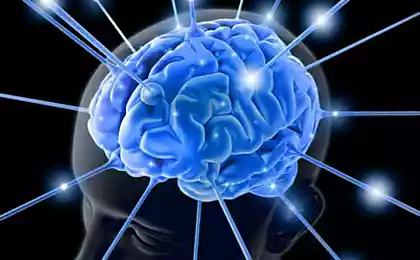641
11 mental traps — rake, to which we come again and again
Mental traps is the so — called rake on which we come again and again. Of course every normal person wants this "bad practice" in its activities was the last, and did not recur.
With the "rake" or mental traps can be easily overcome, if they lie before you in all its glory, without any disguise. But it happens not always, and often we do not see and do not understand what are our mistakes.
The aim of this article is to review the most "popular" mental traps Andre Kukla described in his book.

1. PerseveranceFirst of mental traps. The gist of it is that we continue the case, which is doomed to failure or does not deliver us former pleasure. The most typical example, we inspect nadpisi movie, only because of stubbornness and the fact that we are taught from childhood to follow through. In the end, it's just a waste of Your time and spoiled the mood.
2. AmplificationIs a trap and we fall into it when put to the goal of more effort than necessary. The so-called endless pursuit of perfection or perfectionism. Here we should recall the infamous "Pareto principle", the essence of which is that 20% of work give 80% of result, and Vice versa: 80 percent of the work bring 20% th result.
3. FixingWhen fixing our progress to the goal is blocked. We can't start a business until you wait for call, resolution, inspiration, etc.

4. ReversionWe lost, time is gone. But if at this stage we continue to excite all the same problem, so we are trapped reversion.
Reversion — this is a temporary fix contrast. When you commit, we are furiously working to hasten the onset of a frozen future. When reversion we are endeavoring to alter an irreversible past. Here you only need to put up and take it for granted.
5. Ahead ofthe Trap in which we find ourselves starting too early. We recycle when the same result can be achieved more easily later. A typical example of a training session, when a student in a couple of weeks of training, performs all required in the curriculum, which was extended for the whole semester.
6. ResistanceResistance — is a disease "just a little". Unwillingness to change course of action, under the influence of external circumstances (the doorbell, while watching a movie or a Wake-up call and we do not want to get up, but still have, so it makes no sense to delay it).
7. DelayWe definitely decided on some business, but we find it difficult to begin. The procrastination, coming up with minor matters, with a view to delay the execution of unpleasant duties.

8. The division ofAttention is indivisible in principle. Work means work, relax, then rest. When on vacation we think about work and when at work thinking about the rest, qualitatively we can't do neither one nor the other.
9. AccelerationAcceleration is a trap into which we get when we do something with a little more than you need speed. (The acceleration — a mirror image of the tightening). As they say, all perform life is not enough, so you should not grieve on this account. Infinity minus one is infinity, too, so there's really no rush. Acceleration will only perpetuate the habit of hectic.
10. RegulationWhen our thought takes note of the fact that the door is open, we think, descriptive. When we decide that the door should be closed, we think prescriptive. Regulation is the trap useless regulations. We fall into the trap of regulation, when prescribed himself some behavior in a situation where the pulse would be the best conductor.
11. The formulation ofTrap continuous pronunciation of his thoughts about what we think is true. The most obvious damage caused by the formulation, is that it leads to separation. Whenever we describe or evaluate some event or some experience before they ended, we're doing two things at once. On the one hand, we admire the sunset on the other — say, or think about it. The separation ruins the fun. In fact, we can't really enjoy the sunset and at the same time enjoy it because dealing with the assessment, we abstract from the sensory experience.As soon as we say: "Oh, how wonderful, isn't it?" the miracle disappears.published
P. S. And remember, just changing your mind — together we change the world! ©
Source: //www.facebook.com/wikium/photos/a.857146557630241.1073741827.857093394302224/1462795913731966/?type=3&theater
With the "rake" or mental traps can be easily overcome, if they lie before you in all its glory, without any disguise. But it happens not always, and often we do not see and do not understand what are our mistakes.
The aim of this article is to review the most "popular" mental traps Andre Kukla described in his book.

1. PerseveranceFirst of mental traps. The gist of it is that we continue the case, which is doomed to failure or does not deliver us former pleasure. The most typical example, we inspect nadpisi movie, only because of stubbornness and the fact that we are taught from childhood to follow through. In the end, it's just a waste of Your time and spoiled the mood.
2. AmplificationIs a trap and we fall into it when put to the goal of more effort than necessary. The so-called endless pursuit of perfection or perfectionism. Here we should recall the infamous "Pareto principle", the essence of which is that 20% of work give 80% of result, and Vice versa: 80 percent of the work bring 20% th result.
3. FixingWhen fixing our progress to the goal is blocked. We can't start a business until you wait for call, resolution, inspiration, etc.

4. ReversionWe lost, time is gone. But if at this stage we continue to excite all the same problem, so we are trapped reversion.
Reversion — this is a temporary fix contrast. When you commit, we are furiously working to hasten the onset of a frozen future. When reversion we are endeavoring to alter an irreversible past. Here you only need to put up and take it for granted.
5. Ahead ofthe Trap in which we find ourselves starting too early. We recycle when the same result can be achieved more easily later. A typical example of a training session, when a student in a couple of weeks of training, performs all required in the curriculum, which was extended for the whole semester.
6. ResistanceResistance — is a disease "just a little". Unwillingness to change course of action, under the influence of external circumstances (the doorbell, while watching a movie or a Wake-up call and we do not want to get up, but still have, so it makes no sense to delay it).
7. DelayWe definitely decided on some business, but we find it difficult to begin. The procrastination, coming up with minor matters, with a view to delay the execution of unpleasant duties.

8. The division ofAttention is indivisible in principle. Work means work, relax, then rest. When on vacation we think about work and when at work thinking about the rest, qualitatively we can't do neither one nor the other.
9. AccelerationAcceleration is a trap into which we get when we do something with a little more than you need speed. (The acceleration — a mirror image of the tightening). As they say, all perform life is not enough, so you should not grieve on this account. Infinity minus one is infinity, too, so there's really no rush. Acceleration will only perpetuate the habit of hectic.
10. RegulationWhen our thought takes note of the fact that the door is open, we think, descriptive. When we decide that the door should be closed, we think prescriptive. Regulation is the trap useless regulations. We fall into the trap of regulation, when prescribed himself some behavior in a situation where the pulse would be the best conductor.
11. The formulation ofTrap continuous pronunciation of his thoughts about what we think is true. The most obvious damage caused by the formulation, is that it leads to separation. Whenever we describe or evaluate some event or some experience before they ended, we're doing two things at once. On the one hand, we admire the sunset on the other — say, or think about it. The separation ruins the fun. In fact, we can't really enjoy the sunset and at the same time enjoy it because dealing with the assessment, we abstract from the sensory experience.As soon as we say: "Oh, how wonderful, isn't it?" the miracle disappears.published
P. S. And remember, just changing your mind — together we change the world! ©
Source: //www.facebook.com/wikium/photos/a.857146557630241.1073741827.857093394302224/1462795913731966/?type=3&theater
Scientists have found a way to store solar energy for later use
The incredible healing properties of honey cakes





















